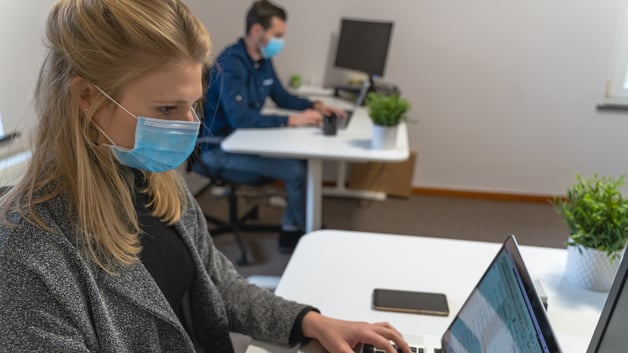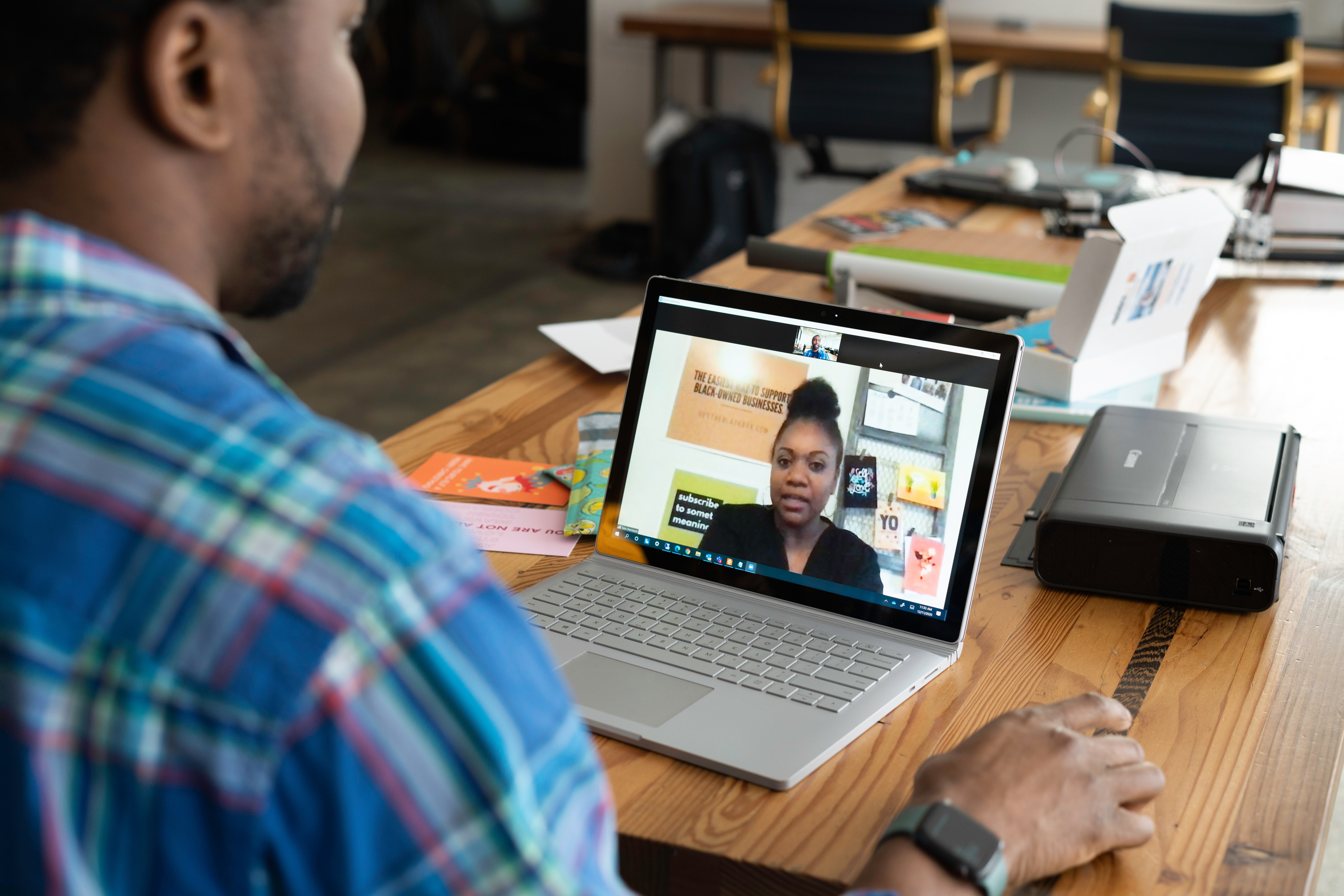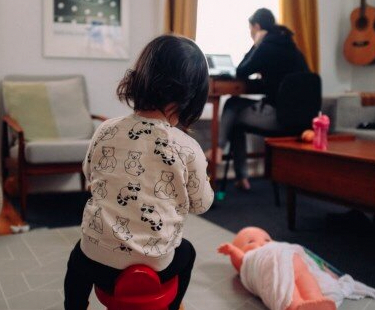 The hybrid work environment is becoming standard for knowledge workers, and managers across all industries must remain flexible and open to developing the way they engage with and support their distributed teams.
The hybrid work environment is becoming standard for knowledge workers, and managers across all industries must remain flexible and open to developing the way they engage with and support their distributed teams.
The spread of the pandemic has fundamentally changed all our lives and increased the responsibilities we hold and the value of psychological safety in teams.
Some companies are reporting a significant increase in productivity since leaving the traditional office. However, wide-spread reports concerning employee burnout and people switching career paths due to a change in personal values raise the question of the costs of increased productivity.
While the benefits of hybrid work are evident to executives watching the bottom line, the negative effects are harder to nail down because team building, establishing relationships, and personal engagement are difficult to quantify.
Managers seeking continued growth and engagement among their hybrid workforce must foster personal connections and nurture psychological safety so their team feels connected and valued.
What is psychological safety?
Psychological safety is being able to express yourself in the workplace without fear of personal criticism or discrimination. It means being able to ask questions without fearing for your job, offering an opinion that defies conventional wisdom without worrying about retaliation or ridicule, and being open and honest about our mistakes without feeling stupid or foolish.
As we interact with our managers and peers from a distance, knowing who we can trust and how the lines of power play out in this new work environment are crucial for us to make an investment in the team and corporate culture.
Some examples of psychological safety include:
-
-
- Sharing a mistake
- Asking for help
- Offering a different opinion
- Asking a question
- Challenging the status quo
- Resolving interpersonal conflict
-
Major corporations like Google have emphasized the long-term value of psychological safety in their teams for years and credit it with developing a stronger workforce and fostering innovation.
Put simply: knowing you can add your thoughts and feelings about any topic without retribution makes us more likely to participate in difficult conversations and propose new ideas to solve problems.
According to the Harvard Business Review, psychological safety creates a culture of ownership and celebrates the idea that while all ideas aren’t necessarily successful, everyone contributing to the brainstorming and development of new concepts and practices makes the team stronger and more effective.
Although psychological safety has become an increasingly urgent and important topic in management culture and the workplace as a whole, it's become even more relevant now that we’re no longer working from offices and having lunch together in the break room.
Hybrid work brings new challenges for psychological safety
Before the pandemic, we were encouraged to keep our personal and professional lives separate. Having so-called professional boundaries was the mark of someone who could get things done despite personal issues such as declining mental health and changes in personal relationships
However, hybrid work environments added additional challenges blurring the line between the personal and professional which forced managers to change the way they work and the amount of effort required to make employees feel comfortable and bought in on the culture and goals at work.
Some issues complicating psychological safety in the hybrid work environment include:
-
-
- It’s harder to speak up in a team meeting when some people are in person and some are remote.
- Being unable to see facial expressions when some people are in a conference room on video conference makes it more difficult to see how your ideas land.
- It’s difficult to build relationships when you're remote and others are in-person because you feel like you're missing out and need to make a more intentional effort to build relationships
- The tone of asynchronous communications via Slack and email can be misinterpreted when relationships don't have a solid foundation and lack the trust to assume positive intent.
- Employees are having a harder time establishing work-life balance when their office is only a few steps away.
- The isolation felt by some workers makes engagement more difficult now that relationships can’t be built over lunch or coffee in the break room.
-
These problems make it crucial for managers to build stronger bonds of trust and open the lines of communication--or risk losing employees who needed more flexibility or authority to make decisions without being questioned unnecessarily.
 How to improve psychological safety in the hybrid workforce
How to improve psychological safety in the hybrid workforce
Frankly, no one has figured out a complete set of best practices for the hybrid work model and managers developing processes for growing engagement, inclusivity, and trust must focus on psychological safety as a means of getting us to continue caring and investing in our jobs.
The office we left in March 2020 has changed drastically. While companies have experienced exponential growth in the last 18 months, the idea that we’re all in this together has diminished greatly as we communicate through software platforms like Zoom and Slack.
The following are effective ways to combat isolation, retain top talent, and increase psychological safety in the hybrid work environment:
Role model vulnerability
Leaders need to demonstrate they don't have all the answers and that things are ambiguous. One way to do this is to frame this transition into hybrid work as a learning opportunity. Share that you don’t have all the answers, and you need everyone’s best thinking to learn and iterate together.
Invite all the perspectives
This is especially important for folks who are remote. Managers need to make sure they create space for these remote workers to share their ideas, ask their questions etc.
Make it okay to take risks and make mistakes
Frame challenges as a learning opportunity. Managers need to frame this as, “we are learning. We don't have it all figured out, and that's okay. We'll learn together." Reinforcing that this is not an execution problem where we need to "get it right" and "be perfect" is crucial.
Remove excessive formal meetings and make space for social capital.
Zoom burnout is real. By all means continue hosting your team's weekly standup, but consider adding a few extra minutes to give people a chance to share their feelings and connect as people. Similarly, 1:1 check-ins don't have to focus purely on productivity -- they can be a valuable opportunity to connect with coworkers on a more personal, empathetic level.
Reward collaboration
Collaboration allows your team to connect socially as well as create a final outcome that is more than the sum of its parts. Managers should set expectations for collaborative behavior and acknowledge those who demonstrate positive collaboration. The key here is to make sure people understand they are not alone and that fellow employees are there to support and guide them through any difficulties they face.
Create an “open door” policy
Managers need to over communicate and make it clear they are available to support their employees with professional and personal issues that may arise. Making it known that office hours are a safe space for even the hardest of questions goes a long way when making people feel safe to express themselves. Considering the increased stress many in the hybrid workforce have experienced since leaving the office full-time, it’s crucial that leadership emphasize that they are not alone and unexpected complications brought about by the uncertainty of the pandemic are not unique or career changing.
Establish new norms for the hybrid work environment
Whether employees are coming back to the office after being vaccinated or continue to work from home, it’s crucial that managers intentionally establish new norms that reinforce psychological safety. Managers should share their own personal experiences, proactively demonstrate vulnerability, and publicly/visibly acknowledge the collective trauma we've experienced
Increasing engagement and psychological safety is a win-win
Even the most skilled, experienced employees can't do what they do best if they don't feel seen and heard, or cannot safely express themselves during times of immense social and environmental change
By prioritizing an open exchange of ideas and a learning culture, companies can retain their most talented employees, increase productivity, and ensure their team’s long term success.


